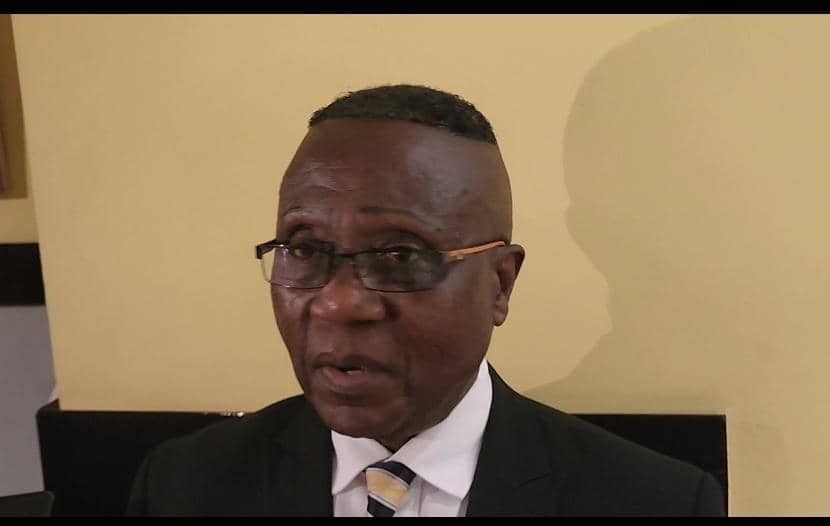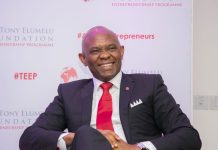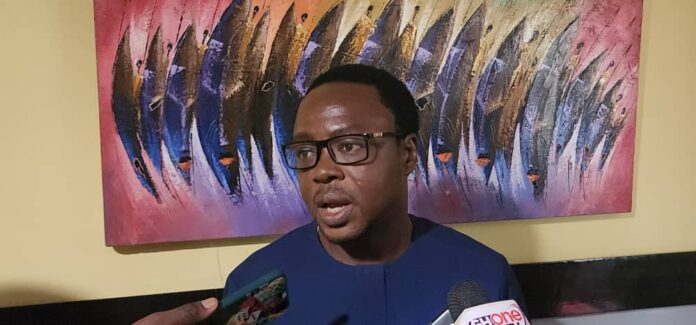Author: Beyonce Diamond Kpogli
Executive Director of Peasant Farmers Association, Dr. Charles Nyaaba has called on the government of Ghana to consider restoring various subsidies removed on agro-products.
He said the absence of these subsidies has resulted in high food prices on the market, making it difficult for an ordinary Ghanaian to buy.
“Per June 2023 Ghana Statistical Service Inflation data, saw food prices are skyrocketing leading the inflation to 54%. The highest inflation in Africa.”
Dr. Charles Nyaaba made this known to the media at the. Economic Governance Platform media interface conference on Ghana’s IMF BAILOUT on the theme: The 17TH IMF BAILOUT: WHAT DID GHANA SIGN UP FOR?
The conference held in Accra focused on the IMF 2023 and also made recommendations for CONSIDERATION for the 2023 MID-YEAR BUDGET REVIEW.
He noted that Farmers are yet to receive any support from the agricultural budget allocation.
“The removal of Fertilizer subsidies, seed subsidies, and subsidies on farming tools and machinery, that farmers used to benefit from previously is a major leading cause of the increment of food cost.
…As it stands, if measures are not put in place to subdue the high cost of foods on the market, we will see a higher and worse case of increase in farm commodities in 2024,” Dr. Nyaaba bitterly expressed.
He added that as a result of this, farmers have no option than to share the cost passing on high charges to the consumer which is one of the reasons why food prices are high.
He stressed that one important area the government failed to consider was that when the IMF program was sealed, all input subsidies or tax waivers have been taken off, and almost all agro-products and machinery imported are locked up at the port due to the high cost of clearing fees.
Dr. Nyaaba noted that all these factors put together making agric sector difficult to perform as a sector.
“My concern is not only about what is happening, but my concern is also going forward, next year what the sector would look like because as we speak, farmers are not able to procure input because of the cost.
Many farmers are not able to plow their lands, many farmers who plow their lands are not able to procure weedicide to control weeds; what will happen is that when this trend continues, it means that next year when we produce, the cost will again increase,” he explained.
Dr. Nyaaba further demanded that the mid-year budget outlines concrete and practical investment plans which will enhance the Agric sector’s performance.
“We hope the government will do something to restore the subsidies. As the finance minister presents the mid-year budget on Monday, we want to see practical investment plans for the sector, especially in the area of tax waivers for agro-inputs and aggregator credit support for aggregators because the second phase of JFJ is coming with a credit guarantee system which will allow aggregators to take credit and then support farmers to produce. When they produce, they will aggregate the produce on the market for all of us.”
“Furthermore, we expect the mid-year budget to make a concrete allocation for irrigation development.
…The government started with one village one dam, and we know the dams were poorly construed so we expect the few dams that can be maintained to see budget allocation to and revive them”, he suggested.
On his part, the Director of Research at the Institute of Economic Affairs (IEA), Dr. John Kwakye, also stated that the government’s revenue agreement with the International Monetary Fund (IMF) for revenue generation is not ambitious enough.

According to him, the government can raise its revenue generation by allocating more resources to capital expenditure, cutting down on the size of the government.
He emphasized that “as a country, we are not poor, we have resources, the so-called resources constrict that we talked about, I think is self conflicted. We can raise more tax revenue from our resources. We give away to so-called foreign investors 85% and hold on to 15% which is not fair”.
He recommended that the government must put in measures to reduce the cost of living as ordinary Ghanaians cannot even afford decent meals.












































